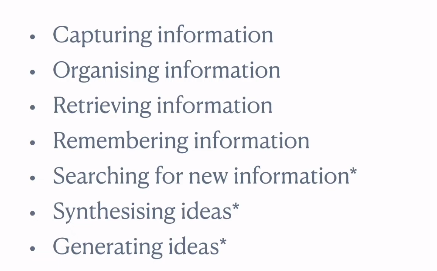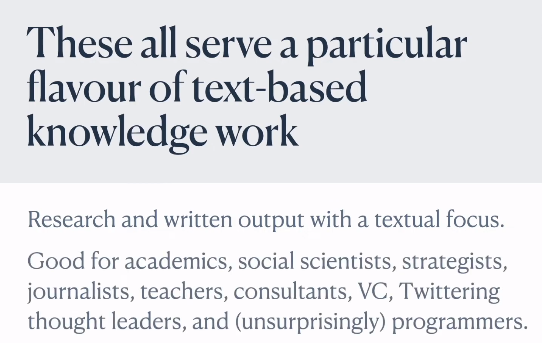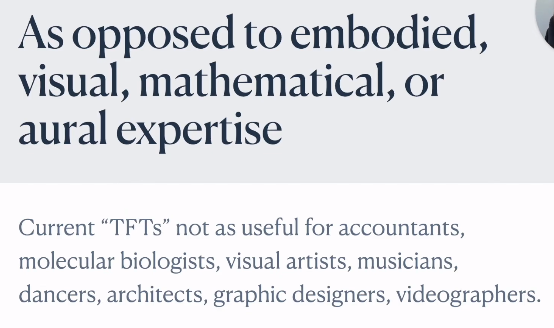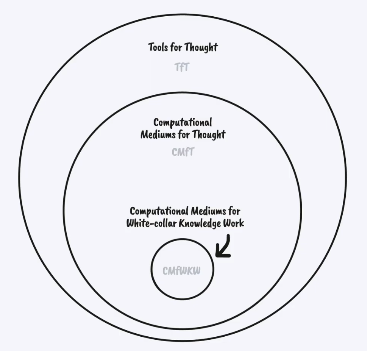tools for thought
related topics: personal knowledge management, note-making, networked thought, computer-supported collaborative work (CSCW), knowledge graphs, human-computer interaction (HCI), extended cognition.
about
essential read presenting the history of the field and a few important terms: tools for thought as cultural practices, not computational objects - maggie appleton.
my relationship with the field
this is a major field of study/research for me, especially if we expand our understanding of conventional "thought" into extended cognition as a whole.
maggie appleton already does that simply yet brilliantly in the article mentioned above.
i'm very interested in this larger scope of "tools for thought", as presented. or as put by bret victor, media for thinking the unthinkable. especially as i have experienced very profoundly the depth/potential of other types of intelligence within myself - somatic intelligence (& embodied cognition through ayahuasca ceremonies), musical intelligence (via música do círculo) and spatial/topographical intelligence (via gaming, user interfaces and wardley mapping).
despite that, i still follow closely and experiment with a bunch of the current CMfT (computational mediums for thought) and CMfWKW as i find the development of certain capabilities (see: xanadu, softspace, wonderOS, weco, codexOS, subconscious (tool), holochain for examples) very important for enabling new forms of sensemaking, coordination systems and collaboration, as part of my research on personal OS design and new social systems, as described on my article: 💭 foundational concepts for developing regenerative information ecologies & empowering knowledge commons.
maggie appleton also uses a different frame that i like, which is "tools for open-ended reasoning" for expanding our view on the field. i think it's great because it encompasses more of the embodied, spatial and other forms of extended cognition that are so relevant for us humans as a whole.
resources
the list of 79 "tools for thought" i'm tracking: https://twitter.com/i/lists/1401589596635402250
the ones i'm following more closely are: obsidian, subconscious (tool), softspace, tana, fermat.ws, capacities, kosmik, omniscience, heptabase, napkin, scrintal and dendron.
non-traditional PKM tools:
patera, research rabbit, (...)
projects in the wider spectrum of TfT, driving the field forward:
dynamicland, new computer, (...)
early/major thinkers in the space:
douglas engelbart, kenneth iverson, j.c.r. licklider, vannevar bush, alan kay, bob taylor, seymour papert, howard rheingold.
contemporary thinkers/researchers:
tim berners-lee, bret victor, gordon brander, paul rony, andy matuschak, paul bricman, maggie appleton



